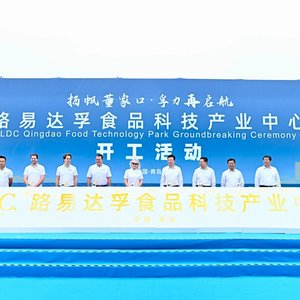A newly constructed alternative energy system passed its final electrical inspection at N.C. State University’s Marine Aquaculture Research Center (MARC) in Smyrna, N.C., U.S.A. A demonstration hybrid photovoltaic (solar)-wind system will power pumps, as well as heat and cool water for application to the state’s growing aquaculture industry. In 2011, N.C. State University’s Center for Marine Sciences and Technology (CMAST) was awarded $253,501 in funding for the project, part of a $4.6 million Green Business Fund Award granted through the N.C. Department of Commerce, as well as an additional $37, 000 from private donors.
The hybrid system consists of a 10 kW Wind Turbine that stands about 90 feet tall and a 10 kW Solar Array, using 40 separate solar panels each generating approximately 240 watts. Computerized data logging systems will record the amount of electricity generation from wind versus solar. Projected energy generation is 21,500 kilowatt hours of the 100,000 kWh annual demand, which will be used to offset the nearly $2,300 per year in electricity costs at the Carteret County facility.
CMAST Director David Eggleston commented, “The objective of this project is to determine the degree to which solar, wind or a solar-wind hybrid power system can produce electricity and reduce costs associated with marine aquaculture operations. When combined with emerging technology on treating aquaculture waste effluent, the results from this study will enhance net profits and environmental sustainability of aquaculture operations in coastal environments, which is important to the development of a globally competitive U.S. aquaculture industry. This project will also serve as a case study for other businesses in the region interested in generating a portion of their electricity from renewable energy sources.”
The N.C. State MARC facility was constructed in 2010 to study saltwater aquaculture, which currently lags behind freshwater aquaculture in terms of research and technology transfer. One technology project being tested at MARC is a unique, flowing seawater system, which takes in water from a nearby creek, cleans it for laboratory use and treats it again before being returned to the creek without causing any adverse impact on the environment. The additional alternative energy technology geared for such facilities adds an extra opportunity for aquaculture farm success.










